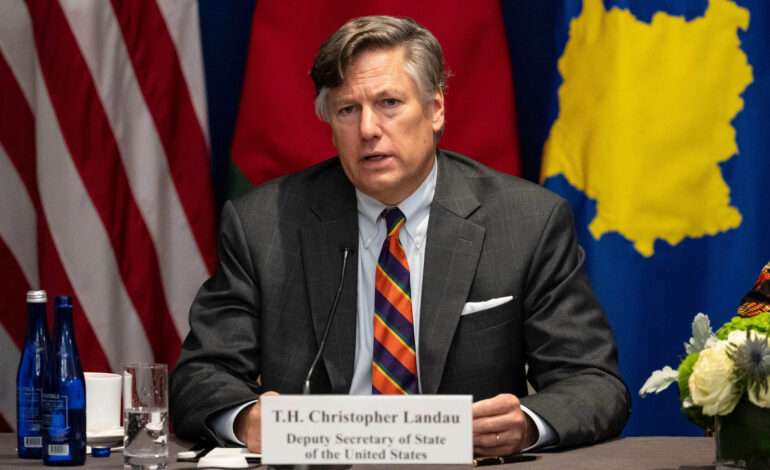
Top U.S. diplomat says joint fact sheet opens a ‘new chapter’ in South Korea–U.S. alliance
U.S. Deputy Secretary of State Christopher Landau said the newly released joint fact sheet between South Korea and the United States marks the start of a “new chapter” in the two allies’ strategic partnership. Speaking at a forum jointly hosted by the Atlantic Council and the Korea Society in Washington, Landau highlighted the document as a roadmap for the future of the alliance.
The fact sheet, released Thursday, outlines the outcomes of two summits held by South Korean President Lee Jae Myung and U.S. President Donald Trump—one at the White House in August and another in Gyeongju last month, ahead of the APEC summit. The document details agreements on security cooperation, trade, investment, and joint priorities across multiple strategic sectors.
“I encourage all of you to read that fact sheet closely, because it lays out our joint priorities for the years to come,” Landau said. These priorities, he explained, include fortifying critical industries, ensuring foreign exchange market stability, expanding commercial relations, modernizing the alliance, and strengthening maritime and nuclear cooperation.
Landau emphasized the strong personal relationship between Trump and Lee, noting that the two in-person summits resulted in “landmark deals” that will generate billions of dollars for the U.S. economy. He highlighted Korea’s role as a major investor in the United States, noting its contributions to American manufacturing, energy exports, and trusted technology partnerships.
South Korea, he said, is “absolutely vital” to the administration’s push to revive American manufacturing. Key areas of Korean investment include shipbuilding, semiconductors, pharmaceuticals, critical minerals, artificial intelligence, and quantum technologies. Landau added that South Korean expertise is essential to help American workers operate advanced manufacturing facilities.
Addressing the September immigration crackdown involving Korean workers at a battery plant construction site in Georgia, Landau called the incident “regrettable.” He said his visit to Seoul the same month included a commitment to fix visa processes to ensure such disruptions do not occur again. He reiterated that President Trump welcomes Korean experts coming to the U.S. to train American workers in high-precision industries.
Landau said both governments have already made “quick strides” by establishing a dedicated support desk at the U.S. Embassy in Seoul and working on a potential visa category tailored for Korean specialists involved in major investment projects.